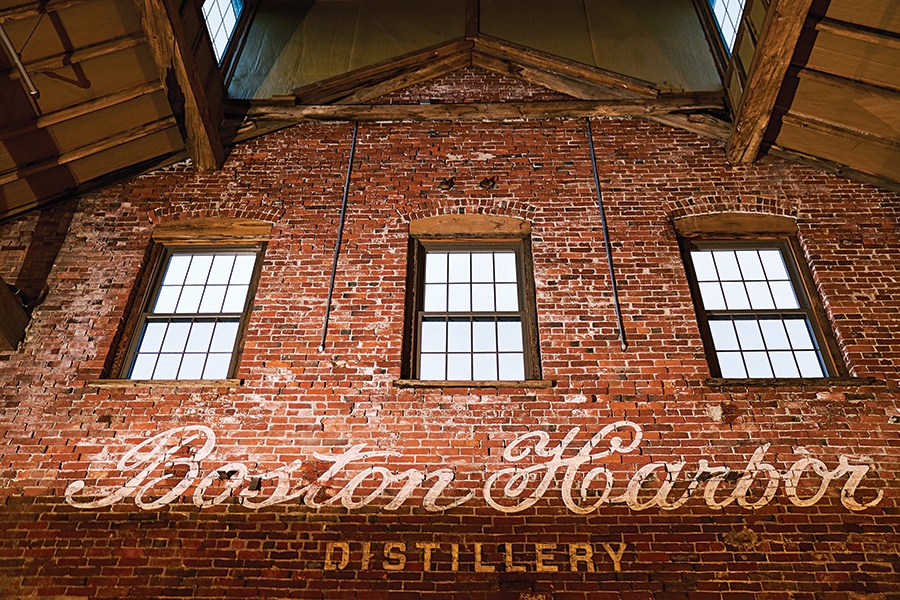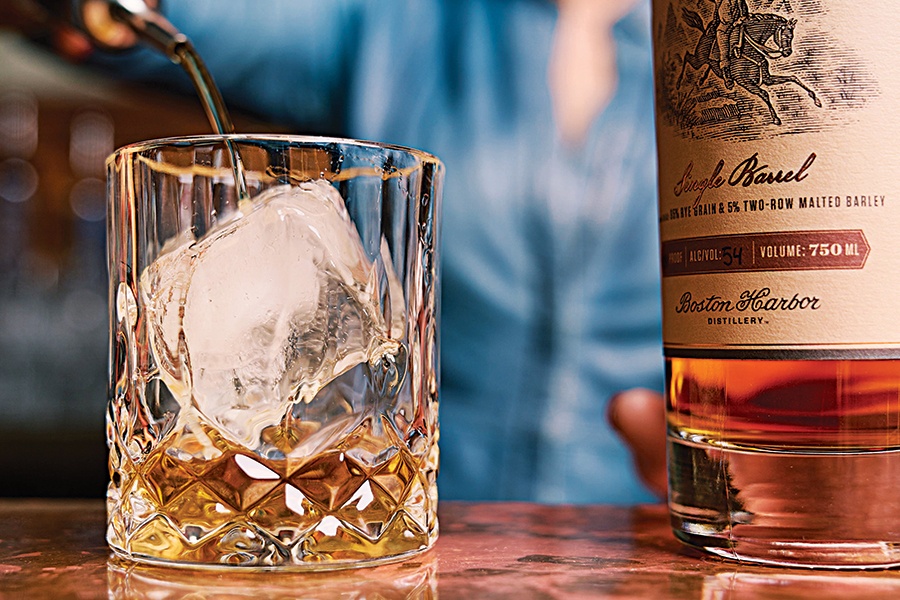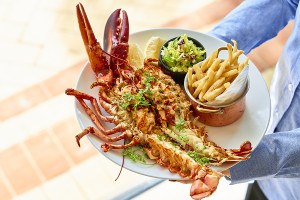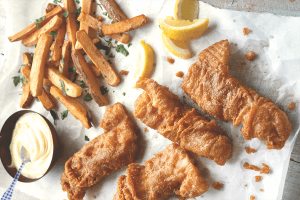Boston Beer Innovator Rhonda Kallman Brings Her Craft Brew Experience to Liquor
After creating beer synonymous with the city, the Boston Beer Company co-founder started Boston Harbor Distillery to drive the same success in spirits.

“Fiery whiskey—that’s our newest,” says Kallman, above. “It’s called Demon Seed.” / Photo by Kelly Davidson
You would think Rhonda Kallman had hit the height of her career after founding Boston Beer Company with James Koch in 1984, but in fact, she was just getting started. Twenty-five years later, once the company had become a massive market success, Kallman saw an opportunity to bring the craft-beer experience to the spirits industry, so she made the most of it. “Whiskey was always my first love,” she says. “That’s why I did it.”
Located in Dorchester, the distillery is housed in a building rich with history, which Kallman and her husband Matt found due to area traffic. “You can thank the Southeast Expressway on a Friday afternoon for discovering the spot,” she says. While the couple was out looking for a location, instead of sitting on the highway heading south, they decided to exit and explore the Port Norfolk/Neponset neighborhood. There they came across a dilapidated building on the waterfront next to Venezia restaurant. “We pulled into the parking lot, and there was this amazing 11,000-square-foot, falling-down structure [with Douglas fir post-and-beam construction, 40-foot-high ceilings, and more than 100 windows],” Kallman says. “Matt, who happens to be a builder, said, ‘there’s your distillery.’”

After a nearly two-year search, Rhonda Kallman found the perfect location for Boston Harbor Distillery at The Port on Boston Harbor. The structure, which was constructed in 1859, is one of the area’s last remaining mill buildings and features Douglas fir post-and-beam construction, more than 100 windows, and 40-foot high ceilings.
Constructed in 1859, the structure is one of the area’s last remaining mill buildings. It was assembled by Silas Putman, who automated the manufacturing of the hot-forged horseshoe nail; was later occupied by George Lawley & Son Shipyard, where America’s Cup–winning yachts were made (as well as minesweepers for World War II); and was also a Seymours Ice Cream factory. “This whole 18-acre parcel that we sit on has been the center of entrepreneurial commerce for not only the city of Boston and the state of Massachusetts but really for the country,” Kallman explains. “It took about 18 months, money, and vision to renovate it, and three years from when I incorporated in 2012, we opened the doors in 2015.” The result?
A production facility with a front-of-house component featuring a cocktail bar where the staff does tours, educational seminars, and events. “We call it a refined grittiness,” she adds, “quintessential Boston.”

“My Putnam whiskey is very smooth, soft, and has a beautiful, flavorful finish,” Kallman says, adding that the experience of making something from scratch has been really exciting for her. As far as what’s next for Boston Harbor Distillery, Kallman says she’d like to increase distribution and make the brands more available throughout Massachusetts and New England. “But we have started to do business in other states like California and Texas and New Orleans and Florida / Photo by Kelly Davidson
In keeping with a classics theme, the previous inhabitants have also influenced Boston Harbor’s product line. “Hence the name of our whiskey, which is Putnam,” Kallman notes, “and our nautical line of fresh botanical fine rums [and gin] is named Lawley’s.” Additionally, the distillery has a confectionary line of maple cream, coffee liqueur, pre-bottled ready-to-drink cocktails (including an espresso martini), and spirit-infused chocolate bars in partnership with Goodnow Farms. “We also have a fiery whiskey—that’s our newest,” she adds. “It’s called Demon Seed.” Last but not least, the team distills Sam Adams beer (among others) into a brew product called Spirit of Boston. “So we’ve come full circle from beer to whiskey,” Kallman says. “The process where whiskey starts off is the same process as beer, and I’ve trademarked ‘the evolution of beer’ because that’s really what it is.”
As far as the technical aspects of spirit making, Kallman’s first hire was Dr. James Swan, a world-renowned expert on whiskey maturation and production. She also persuaded award-winning distiller John Couchot to join her after they met at an industry conference. He helped design the distillery’s delicious and innovative spirits, which themselves have received industry accolades.
“Everything we make is whole grains, all-natural, and everything distilled is gluten-free. We don’t add sugar to anything,” Kallman reveals. “Our signature sweetener is Vermont maple syrup from a small family farm called Ackermann Maple in Cabot. My distiller met them at a farmers’ market when we were building the place, and we’ve been using their maple since we opened the doors seven-and-a-half years ago.” And while using ingredients like real maple and pure vanilla can be expensive, Kallman prefers that everything be real because it’s better that way. “At the end of the day, I love bringing together the best of the best and giving people just a ‘wow’ for an experience in every bottle that we make.”

Kallman pictured sharing a laugh with John Stark, Boston Harbor Distillery’s head distiller and master blender. “John’s so good at what he does, and he’s so into it,” she says. “[Plus] he’s so patient with everyone when teaching them.” / Photo by Kelly Davidson

